READ:4442025-04-27 19:18:24
Remote-controlled (RC) vehicles are marvels of engineering, blending precision mechanics with high-speed thrills. Whether you’re assembling a kit, upgrading parts, or performing routine maintenance, having the right screwdriver is crucial. Using improper tools can strip screws, damage components, or lead to frustrating repairs. In this guide, we’ll explore the six essential types of RC screwdrivers every hobbyist should have in their toolkit.
Hex screwdrivers, often called Allen keys, are a staple in RC maintenance. Hex screws are widely used in RC cars, drones, and trucks due to their ability to handle high torque without slipping.
Features: L-shaped or T-handle designs with hexagonal tips. Common sizes include 1.5mm, 2.0mm, 2.5mm, and 3.0mm.
Benefits: Precise grip reduces the risk of stripping screw heads. Durable chrome-vanadium steel construction ensures longevity.
Use Case: Ideal for tightening motor mounts, suspension arms, and chassis components.
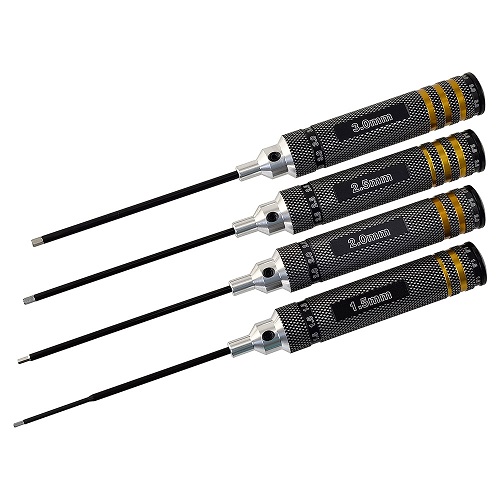
Nut drivers are designed specifically for tightening and loosening nuts, which are common in wheel hubs and suspension systems.
Features: Socket-like tip with a hollow shaft to grip nuts securely. Metric sizes (e.g., 4.0mm, 5.5mm, 7.0mm and 8.0mm) match standard RC hardware.
Benefits: Faster than wrenches and prevents finger fatigue during repetitive tasks.
Use Case: Perfect for wheel nuts or hex nuts on shock absorbers.
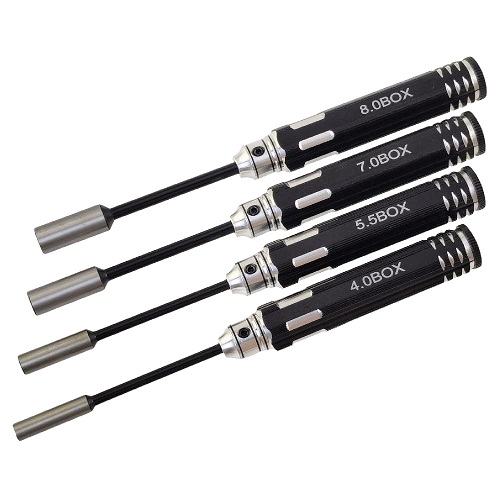
Recognizable by its cross-shaped tip, the Phillips screwdriver is essential for electronics and certain RC parts.
Features: Tips range from #0 (tiny) to #2 (larger) for compatibility with servo mounts or receiver boxes.
Benefits: Anti-cam design minimizes slippage. Look for hardened steel tips for durability.
Use Case: Servo screws, battery trays, and body posts.
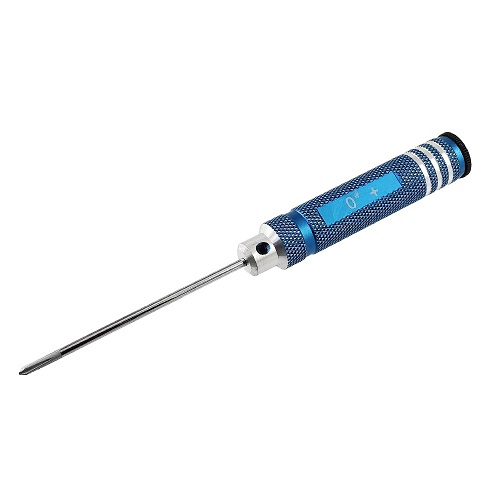
Though less common in modern RC builds, flathead screws still appear in older models or specific components.
Features: Flat, single-blade tip available in widths like 2.0mm 3.0mm or 5.0mm.
Benefits: Simple design for basic tasks.
Use Case: Adjusting trim tabs or older-style gearboxes.
Tip: Ensure the blade fits snugly to avoid damaging the screw slot.
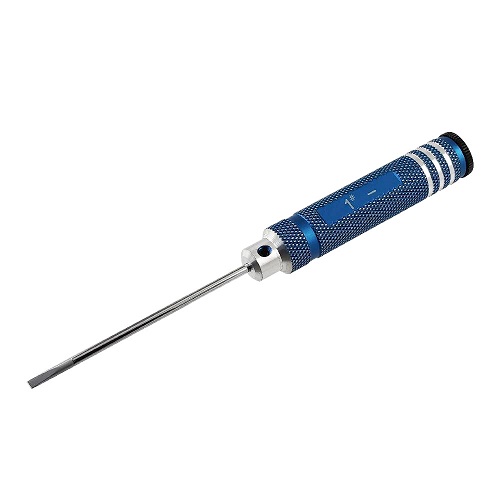
A versatile all-in-one tool for hobbyists tackling diverse projects.
Features: Interchangeable bits (hex, Phillips, flathead and nut) stored in the handle. Magnetic tips hold screws securely.
Benefits: Compact and portable—great for on-the-go repairs.
Use Case: General maintenance, especially when switching between screw types.
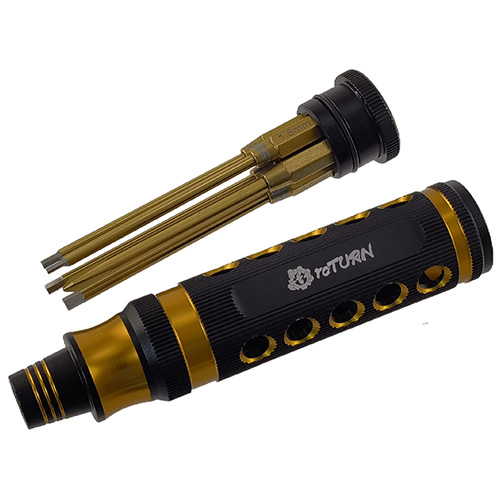
For those who frequently disassemble models or work on complex builds, this tool saves time and effort.
Features: Adjustable torque settings, rechargeable batteries, and magnetic tips. Compatible with hex, nut, flathead and Phillips bits.
Benefits: Speeds up repetitive tasks and reduces hand strain. Precision control prevents over-tightening.
Use Case: Large-scale builds or frequent motor/ESC adjustments.
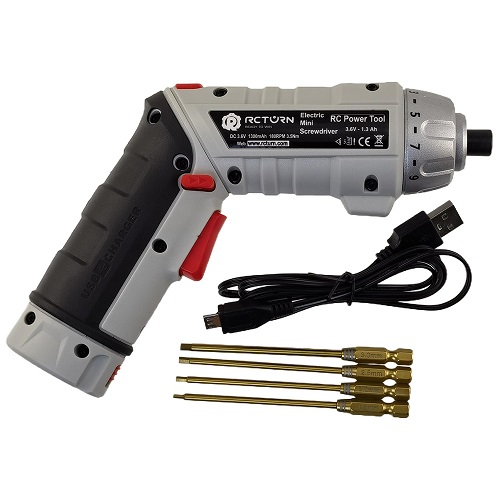
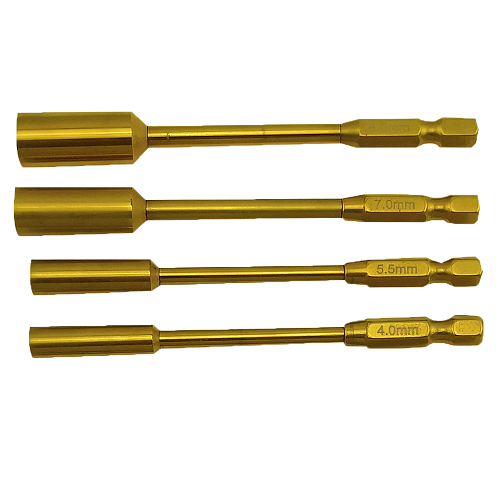
Choosing the right RC screwdriver isn’t just about convenience—it’s about protecting your investment and ensuring peak performance. From the rugged hex driver to the speedy cordless electric model, each tool serves a unique purpose. Prioritize quality materials like hardened steel and ergonomic designs to build a toolkit that lasts. Whether you’re a casual hobbyist or a competitive racer, having these six screwdrivers on hand will make maintenance smoother and upgrades hassle-free.
Pro Tip: Store your tools in a labeled case to keep them organized and ready for action. Happy wrenching!